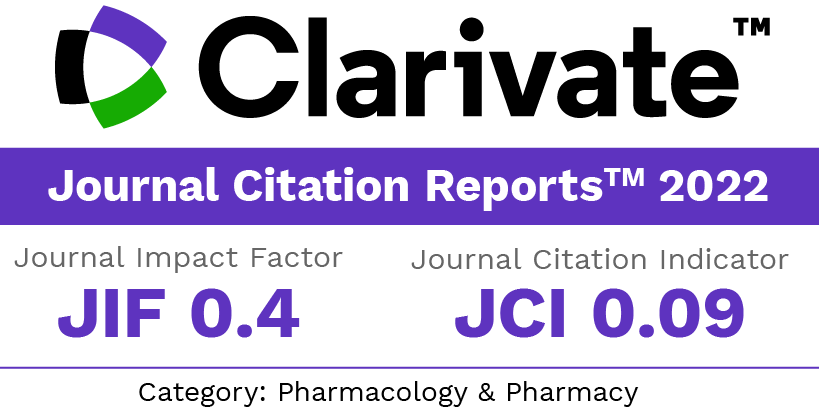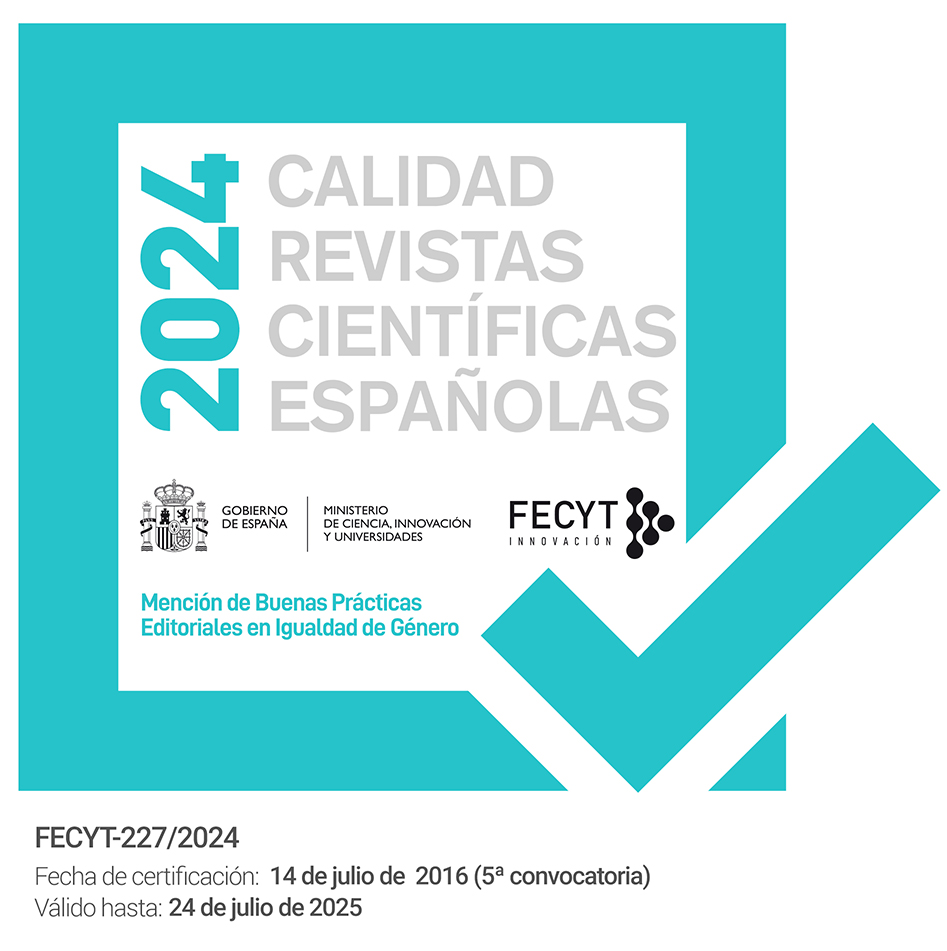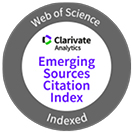Validity and Reliability of the Spanish version of the SKILLD questionnaire in a Panamanian population
DOI:
https://doi.org/10.30827/ars.v66i3.33054Keywords:
Diabetes Mellitus Type 2, Health Knowledge, Attitudes, Practice, Surveys and Questionnaires, Reproducibility of ResultsAbstract
Introduction: The objective was to study the validity and reliability of a Spanish version of the SKILLD (Spoken Knowledge in Low Literacy in Diabetes Scale) in patients with T2D in Veraguas (Panama) and to assess their knowledge about this disease.
Method: The study was conducted in four health centers in Veraguas (Panama). Participants completed the SKILLD questionnaire, and their HbA1C was measured. Construct validity (principal component factor analysis) and criterion validity were assessed, as well as reliability (Cronbach’s alpha and test-retest).
Results: A total of 175 patients participated in the study, of whom 115 (68 %) were women. The mean age was 60.0 years (SD: 12.0). According to BMI, only 29.1 % (51) had a normal weight. The 67.4 % of patients had uncontrolled T2D. The mean HbA1C was 8.6 % (SD: 2.3). The mean SKILLD score was 4.1 (SD: 2.1). Regarding SKILLD, reliability measured by internal consistency was α = 0.559, and temporal stability was ICC = 0.803 (95 % CI = 0.670-0.882). The principal component factor analysis extracted four factors that explained 55.3 % of the total variance.
Conclusions: Patients in the Veraguas region (Panama) have low knowledge about their type 2 diabetes, regardless of whether their HbA1C values are within the ADA recommended range or not. The SKILLD questionnaire has proven to be a useful, reliable, and valid tool, although further studies are needed to reinforce these findings.
Downloads
References
International Diabetes Federation (IDF) Diabetes Atlas. 10th edition. [monografía en internet]. International Diabetes Federation; 2021[citado 10 de marzo de 2025] disponible en: https://fmdiabetes.org/wp-content/uploads/2022/01/IDF_Atlas_10th_Edition_2021-comprimido.pdf
Quintana HK, Moreno Velásquez I, Montenegro Mendoza R, Niño Hall C, Motta J, Roa R. Diabetes mellitus, its prevalence, awareness, and control in Panama: Data from ENSPA 2019, a national cross-sectional study. Medicine (Baltimore). 2023;102(32):e34600. DOI: 10.1097/MD.0000000000034600 DOI: https://doi.org/10.1097/MD.0000000000034600
Díaz MS. Priorizar el control glucémico temprano para reducir las complicaciones micro y macrovasculares en personas con diabetes tipo 2 [Internet]. RedGDPS 2022 [citado 21 de febrero de 2025]. Disponible en: https://redgedaps.blogspot.com/2022/06/
Holman RR, Paul SK, Bethel MA, Matthews DR, Neil HAW. 10-Year Follow-up of Intensive Glucose Control in Type 2 Diabetes. New England Journal of Medicine. 2008;359(15):1577-89. DOI: 10.1056/NEJMoa0806470 DOI: https://doi.org/10.1056/NEJMoa0806470
Rothman RL, Malone R, Bryant B, Wolfe C, Padgett P, DeWalt DA, et al. The Spoken Knowledge in Low Literacy in Diabetes scale: a diabetes knowledge scale for vulnerable patients. Diabetes Educ. 2005;31(2):215-24. DOI: 10.1177/0145721705275002 DOI: https://doi.org/10.1177/0145721705275002
Jeppesen KM, Hull BP, Raines M, Miser WF. A validation study of the spoken knowledge in low literacy in diabetes scale (SKILLD). J Gen Intern Med. 2012;27(2):207-12. DOI: 10.1007/s11606-011-1900-9 DOI: https://doi.org/10.1007/s11606-011-1900-9
Garcia AA, Zuniga J, Reynolds R, Cairampoma L, Sumlin L. Evaluation of the spoken knowledge in low literacy in diabetes scale for use with Mexican Americans. J Transcult Nurs. 2015;26(3):279-86. DOI: 10.1177/1043659614524246 DOI: https://doi.org/10.1177/1043659614524246
Hu J, Amirehsani KA, McCoy TP, Wallace DC, Coley SL, Zhan F. Reliability and Validity of the Spoken Knowledge in Low Literacy in Diabetes in Measuring Diabetes Knowledge Among Hispanics With Type 2 Diabetes. Diabetes Educ. 2020;46(5):465-74. DOI: 10.1177/0145721720941409 DOI: https://doi.org/10.1177/0145721720941409
A1CNow+ System [Internet]. PTS Diagnostics. [citado 10 de marzo de 2025]. Disponible en: https://ptsdiagnostics.com/a1cnow-plus-system/
American Diabetes Association. Glycemic Goals and Hypoglycemia: Standards of Care in Diabetes-Diabetes Care 2024 [Internet]. 2024 [citado 10 de marzo de 2025]. Disponible en: https://diabetesjournals.org/care/article/47/Supplement_1/S111/153951/6-Glycemic-Goals-and-Hypoglycemia-Standards-of
Strainer DL, Norman GR, Cairney J. Health measurement scales. A practical guide to their development and use. 5th ed. Oxford: Oxford University Press; 2015. DOI: https://doi.org/10.1093/med/9780199685219.001.0001
de DeVellis, RF. Scale Development: Theory and Applications (Applied Social Research Methods). 3rd Edition. SAGE Publications, Inc; 2011.
Martínez González M, Sánchez-Villegas A, Faulín Fajardo J. Bioestadística amigable. 2a ed. España: Diaz de Santos; 2006.
Lim PC, Rajah R, Lee CY, Wong TY, Tan SSA, Karim SA. Systematic Review and Meta-Analysis of Diabetes Knowledge among Type 2 Diabetes Patients in Southeast Asia. Rev Diabet Stud. 2021;17(2):82-9. DOI: 10.1900/RDS.2021.17.82 DOI: https://doi.org/10.1900/RDS.2021.17.82
Nguyen TH, Tran TTT, Nguyen NK, Diep HG, Vo SD, Taxis K, et al. A randomized controlled trial of a pharmacist-led intervention to enhance knowledge of Vietnamese patients with type 2 diabetes mellitus. Int J Pharm Pract. 2022;30(5):449-56. DOI: 10.1093/ijpp/riac030 DOI: https://doi.org/10.1093/ijpp/riac030
Sociedad Española de Diabetes. Programa de educación terapéutica para personas con diabestes tipo 2 y/o familiares y/o cuidadores [Internet]. 2019. [citado 10 de marzo de 2025] disponible en: https://d2q8uh6bd0ohj9.cloudfront.net/wp-content/uploads/2019/05/27152144/educacion-terapeutica-tipo2.pdf
Downloads
Published
How to Cite
Issue
Section
License
Copyright (c) 2025 José Pedro García Corpas, Hermes Rodríguez Battikh, Eric Conte Valdés, Sara Itzela Gómez Castillo, Fernando Martínez Martínez

This work is licensed under a Creative Commons Attribution-NonCommercial-ShareAlike 4.0 International License.
The articles, which are published in this journal, are subject to the following terms in relation to the rights of patrimonial or exploitation:
- The authors will keep their copyright and guarantee to the journal the right of first publication of their work, which will be distributed with a Creative Commons BY-NC-SA 4.0 license that allows third parties to reuse the work whenever its author, quote the original source and do not make commercial use of it.
b. The authors may adopt other non-exclusive licensing agreements for the distribution of the published version of the work (e.g., deposit it in an institutional telematic file or publish it in a monographic volume) provided that the original source of its publication is indicated.
c. Authors are allowed and advised to disseminate their work through the Internet (e.g. in institutional repositories or on their website) before and during the submission process, which can produce interesting exchanges and increase citations of the published work. (See The effect of open access).























